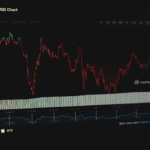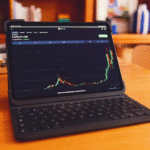
In the fast-paced world of digital asset trading, where fortunes can be made or lost with the click of a button, prioritizing security is not just a choice – it’s a necessity. This guide breaks down the reasons why safeguarding your digital assets is paramount and explores potential risks and challenges that traders might encounter in the evolving landscape of cryptocurrency.
1. Shielding Against Cyber Threats
Digital asset trading platforms are lucrative targets for cybercriminals seeking to exploit vulnerabilities and gain unauthorized access to valuable assets. With the rising popularity of cryptocurrencies, hackers employ sophisticated techniques to breach security systems, compromising not only individual traders but the entire trading ecosystem. By prioritizing security measures, such as two-factor authentication, encryption, and regular security audits, traders can significantly reduce the risk of falling victim to cyber-attacks.
2. Mitigating Market Volatility
The cryptocurrency market is known for its inherent volatility, with prices fluctuating wildly in short periods. Prioritizing security measures helps create a more stable trading environment, reducing the impact of external factors that could adversely affect the market. Traders should be wary of phishing attempts, fake ICOs, and Ponzi schemes, as these pose significant risks to their investments.
Kenson Investments understands the importance of secure trading environments and provides robust security features to ensure a safe and reliable trading experience.
So, if you’re looking for a secure journey in the digital asset world, reach out to Kenson Investments and fortify your trading portfolio.
Disclaimer: The content provided on this blog is for informational purposes only and should not be construed as financial advice. The information presented herein is based on personal opinions and experiences, and it may not be suitable for your individual financial situation. We strongly recommend consulting with a qualified financial advisor or professional before making any financial decisions. Any actions you take based on the information from this blog are at your own risk.














